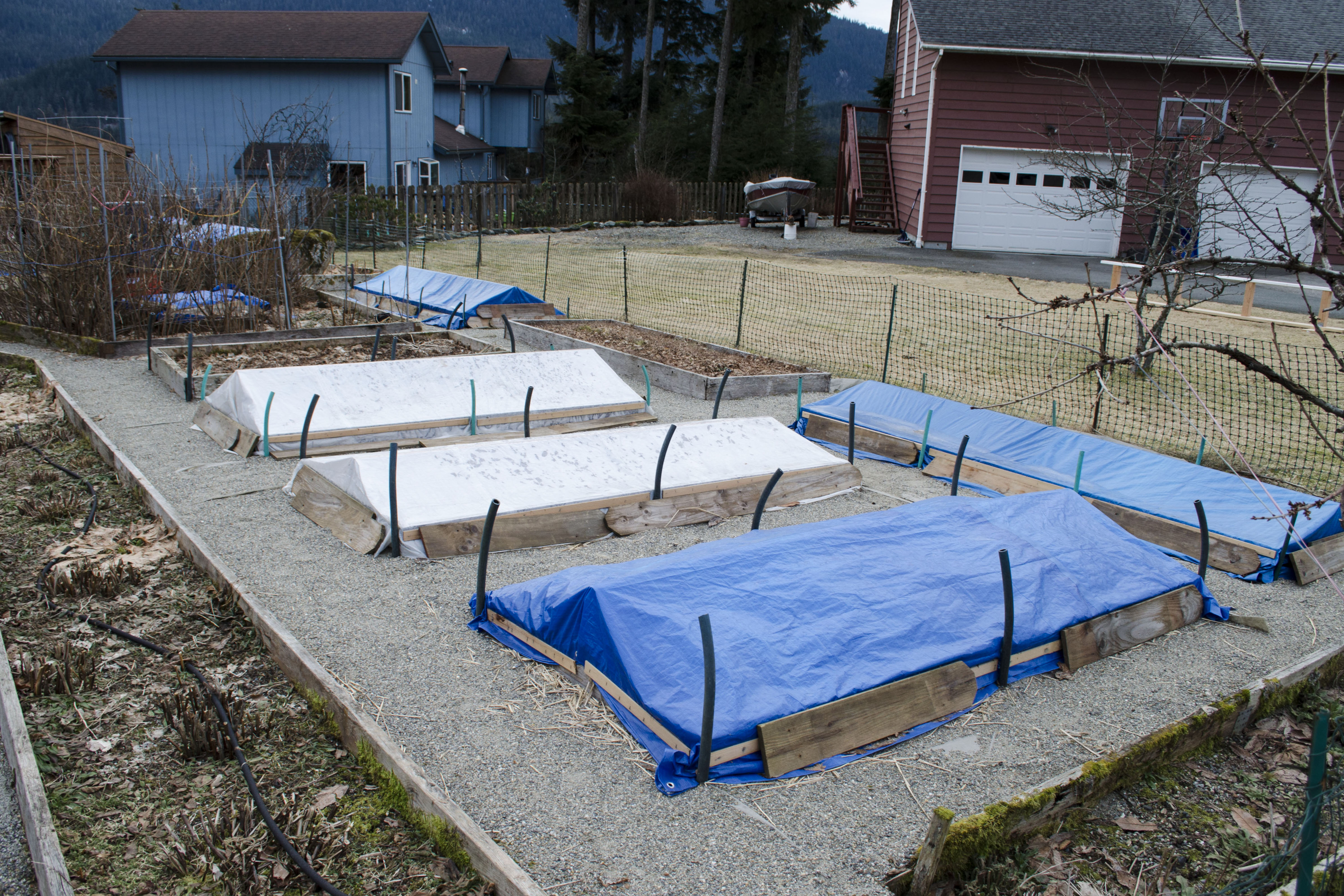
January was the warmest and wettest on record in Juneau. While many people enjoyed the mild weather, some plants and insects were jolted out of hibernation.
Since temperatures have dropped, these organisms face new challenges.
Some hardy spring bulbs have already sent out delicate green shoots. These shoots now need a lot of care.
The best method for protecting these bulbs is to cover them with branches, tarps, or old blankets, according to Master Gardener Ed Buyarski. Last week’s fog and this week’s snow—though resented by pilots and travelers alike—actually benefits gardens because it shields them from sun and temperature fluctuations.
If green tips are left exposed to the elements, they will turn brown as the plant grows. If the bulb’s flower bud gets frosted, it won’t bloom again until next year.
“The bulbs, particularly, are using energy. They are using energy out of those bulbs to grow and they get killed and then they grow some more, and maybe get killed again. Well, that weakens them, which means that you may not get as good of flowering this year and they might not survive or they may not flower, because they may not have enough good enough growth this year to feed the bulb for next year,” says Buyarski.
The record-breaking rainfall also washed nutrients out of the soil. Gardeners can protect against nutrient loss by fertilizing in the fall.
Compost, manure, seaweed and other fertilizers create a warm, fortifying environment for the bacteria and beneficial “bugs” that contribute to a healthy garden, says UAF Cooperative Extension Agent Darren Snyder.
“With these warmer temperatures, the biological activity does increase and so you might as well give them some food there to eat while they’re warm,” says Snyder.
On a positive note, this winter’s freeze and thaw cycle might be helpful in combating invasive pests. Spruce aphid hibernation is interrupted by warm weather, says Elizabeth Graham, an entomologist that specializes in forest pests at the U.S. Forest Service in Juneau.
“There are some insects that actually create an antifreeze. That’s what keeps them from freezing. Sometimes when you get these warm spells followed by freezing, what happens is that they’ll actually start to come out of that dormant state and then suddenly it’ll get cold again, and it can really mess up their overwintering strategy,” says Graham.
Many of the aphids that woke up in January were likely killed off during this recent cold snap. They will continue to feed even as the temperature drops and die when they consume ice crystals that form on and inside plants.
Gardens that have spruce aphids can still be salvaged with pesticides, power washing or by clipping off heavily infested branches.
Since Juneau’s winter may last a while, no one is entirely sure how January’s weather will affect the spring and summer. But there may be some surprises for gardeners, both good and bad.
